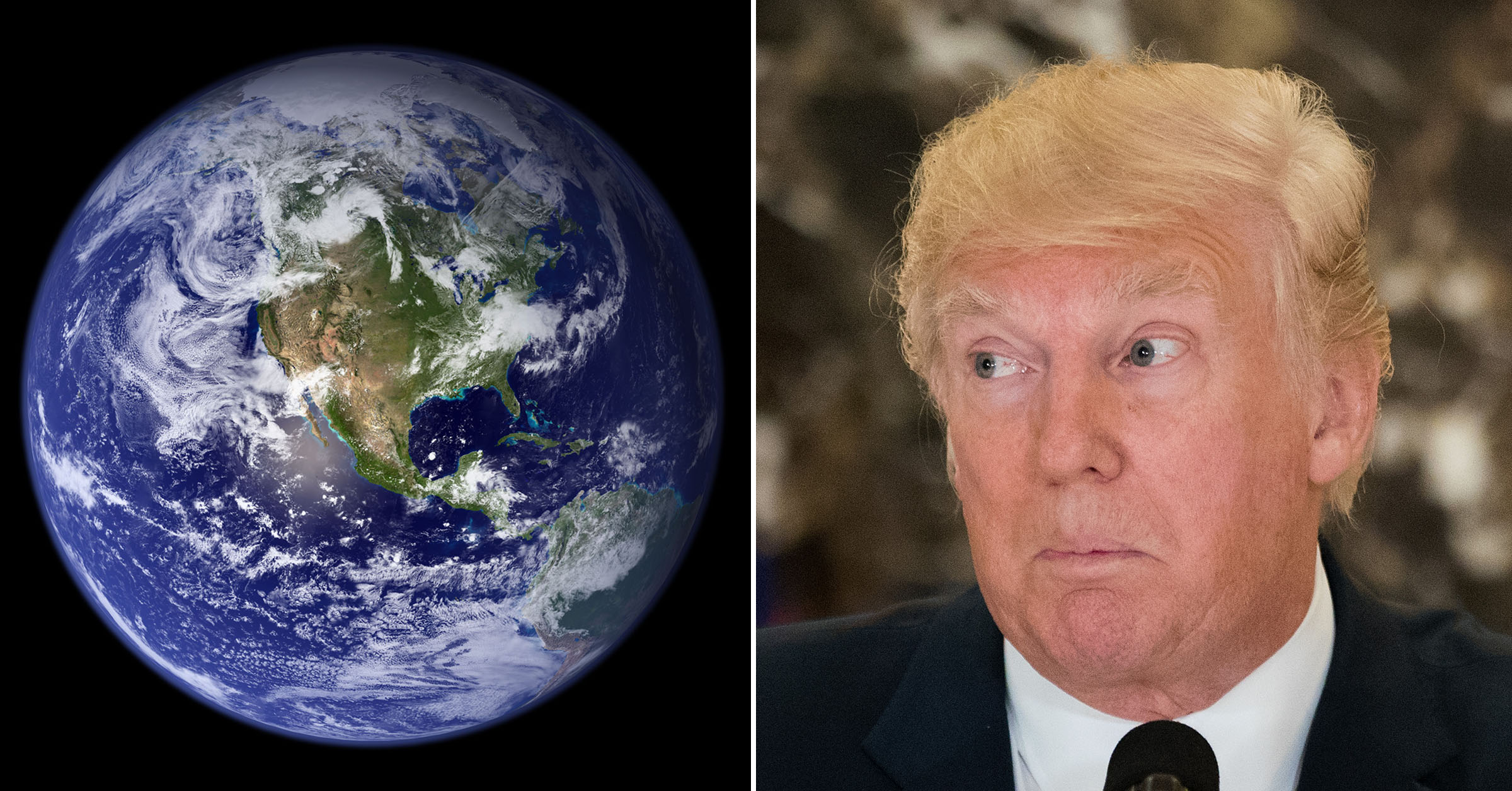Climate Apathy Is Worse Than Climate Denial

Imagine you heard a meteor was careening toward Earth. Though scientists were unsure how big the meteor would be by the time it hit or where it might land, they had been releasing reports on the meteor’s progress toward the planet for decades and estimating the devastation it would cause. The methods by which the world’s governments could stop the meteor or at least mitigate its damage were obvious to everyone—they could start strictly regulating all the industries that effectively acted as meteor magnets, for instance. But the United States, in this scenario, is led by politicians who either deny that meteors exist or else argue that trying to stop the meteor would be too hard or disrupt the economy too much to bother.
That analogy for climate change isn’t perfect—for one thing, the effects of climate change won’t arrive as suddenly as a rock from outer space. But it does illustrate the absurdity of the Trump administration’s fingers-in-its-ears response to a rapidly warming planet and all the catastrophes overwhelmingly likely to result. On Monday, the UN’s Intergovernmental Panel on Climate Change released a report warning that unless carbon dioxide emissions hit net zero by 2050—and are slashed 45 percent by 2030—the world’s average temperature will rise to 1.5 degrees Celsius above what it was in the preindustrial era. That report “describes a world of worsening food shortages and wildfires, and a mass die-off of coral reefs as soon as 2040—a period well within the lifetime of much of the global population,” according to the New York Times. And if nothing is done and the world hits a 2-degree increase, the consequences will be even more dire. As Motherboard reports:
Twice as many people would have unreliable access to water as do today. Food shortages in Saharan and Sub-Saharan Africa, the Mediterranean, central Europe, and the South American Amazon will intensify. The range of heat-driven diseases like malaria will spread. Maize, rice, wheat will become about half as productive, and rice and wheat will become less nutritious. But 2 degrees of warming isn’t even a worst-case scenario. If we keep releasing emissions at our current rate, the earth will warm by 4.8 degrees compared to pre-industrial levels by 2100.
The US government, of course, has no real response to any of this. Donald Trump’s United Nations delegation “accepted” the report, but in a koan-like statement, the US State Department said that “acceptance of this report by the panel does not imply endorsement by the United States of the specific findings or underlying contents of the report.” That statement also reminded everyone that the world’s most powerful country was exiting the Paris agreement “absent the identification of terms that are better for the American people.”
Instead of tackling the crisis that is climate change, the Trump administration has crafted environmental policy so as to address a phantom crisis of overregulation. The president’s agenda has centered on reducing the amount of oversight and rules polluters face, especially when it comes to the coal industry. Though Trump himself once nonsensically claimed climate change was “created by and for the Chinese,” his government has largely followed the lead of North Carolina Republican leaders who flatly ignored a 2010 report warning of rising sea levels—not flagrant climate denial, but malicious climate apathy.
A recent draft statement written to support Trump’s rollback of Obama fuel efficiency requirements for cars revealed what that looks like: The National Highway Traffic Safety Administration said it predicted temperatures would be 4 degrees Celsius above the preindustrial average by 2100, but seemed resigned rather that alarmed by that disaster. Averting that fate, the NHTSA said, “would require substantial increases in technology innovation and adoption compared to today’s levels and would require the economy and the vehicle fleet to move away from the use of fossil fuels, which is not currently technologically feasible or economically feasible.”
The people in 2100 who have survived the surging temperatures and rising seas will probably look back on this estimate of “feasibility” as a shocking, cowardly shirking of responsibility. Though climate change is already here, it’s not too late to avert its worst effects and transform our society. The barriers are not technological nor economic; they are political. Trump and his allies are choosing to ignore the obvious long-term danger in favor of a short-term alliance with the fossil fuel industry. The good news for Trump officials is that many of them will be dead by the time the world hits the 2-degree milestone. The bad news for the rest of us is that their choices will outlive them.
Sign up for our newsletter to get the best of VICE delivered to your inbox daily.
Follow Harry Cheadle on Twitter.
This article originally appeared on VICE US.